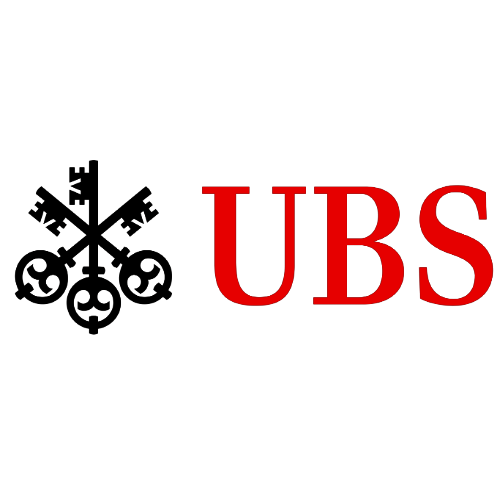UBS psychometric tests
Learn more about UBS psychometric tests
Start preparing today for your UBS numerical reasoning tests. Give yourself the best chance of passing your UBS numerical reasoning tests.
Start preparing today for your UBS numerical reasoning tests. Give yourself the best chance of passing your UBS numerical reasoning tests.

Learn more about UBS psychometric tests
Prepare for your numerical reasoning test
Practice with free numerical reasoning tests

Numerical reasoning tests are a key component of the UBS hiring process, designed to assess candidates’ ability to interpret and work with numerical data. These tests evaluate skills such as analysing graphs, tables, and charts, performing calculations with percentages, ratios, and averages, and applying mathematical reasoning to solve problems. By incorporating realistic business scenarios, the test ensures that candidates can effectively handle data-driven decision-making tasks relevant to their role. As a financial corporation, UBS have a vast amount of data and numeracy oriented roles so a candidate’s numerical ability is very important to display throughout the UBS Psychometric Tests. The process helps UBS identify applicants with the quantitative skills and logical thinking required to succeed. These tests are usually provided by Korn Ferry or Aon/cut-e and typically contain 18-25 questions with a time limit of 18-25 minutes.
To excel in numerical reasoning tests, start by familiarising yourself with the test structure and practising similar questions to boost both confidence and efficiency. Focus on developing key mathematical skills, such as working with percentages, ratios, averages, and interpreting data from graphs and charts. Time management is crucial—address the simpler questions first and avoid spending excessive time on more complex ones. Consistent practice and a well-thought-out strategy are vital for achieving the best results.
Register for free numerical reasoning tests to give yourself the best preparation for your UBS numerical reasoning tests.

The first step of the UBS application process is to complete an application form on the UBS Careers website. Applicants will need to answer a few competency-based questions and provide their contact details, education, and work experience to ensure they meet the required entry criteria. They will also have the option to upload their CV as part of the application form.
The next stage in the UBS hiring process is the online tests. UBS applicants will be given a variety of online assessments. Generally applicants are required to complete the following tests:
There is also an additional ‘HackerRank’ test for specific tech based roles which assesses coding and data competency.
The UBS Sonru interview is an online automated video interview. The digital interview is done through an online platform and will consist of 8 competency based questions which aim to find out about an applicant’s overall suitability for a role. You will be afforded 45 seconds of preparation time followed by 2-3 minutes to provide your response. The questions are pre recorded and your answer will be recorded and submitted for evaluation by the UBS recruiting team. It is essential to be well prepared for your responses through practising common interview questions as well as to be in a quiet, well-lit environment.
The UBS Assessment Centre attempts to give the applicant a taste of the different tasks an employee may face. The activities include the UBS Presentation Exercise, UBS Group Exercise and the UBS Final Interview. The event is generally overseen by senior staff members who attempt to gauge your competencies at different collaborative skills.
UBS provides financial advice and solutions to a diverse range of global clients and offers graduate schemes in areas such as Wealth Management, Client Coverage, Technology, and Real Estate. To assess candidates for these varied roles, UBS uses psychometric tests designed to evaluate cognitive abilities, decision-making skills, and alignment with the company’s core values. The company emphasises teamwork and dedication as key drivers in its mission to ‘connect people for a better world’. As well as numerical reasoning, the psychometric assessments typically include verbal reasoning to evaluate comprehension and inference abilities, and logical reasoning to assess problem-solving and pattern recognition. UBS also employs its bespoke ‘Cultural Appraiser’, a situational judgement test (SJT) that presents realistic workplace scenarios to measure how candidates respond to challenges and demonstrate key behaviours. These timed tests provide valuable insights into a candidate’s potential under pressure.
Register for free psychometric tests to give yourself the best preparation for your UBS psychometric tests.



UBS’ SJTs take the form of their bespoke Cultural Appraiser Test and assess how candidates respond to workplace scenarios, measuring decision-making, problem-solving, and alignment with the company’s values. The Cultural Appraiser Test consists of 15-18 hypothetical workplace scenarios that an employee may encounter. The scenarios are presented through a short video with an accompanying written description. You will then be given a list of actions which you have to rank from most to least effective. This test, unlike others, is not timed and allows the candidate to thoughtfully decide on the appropriate ranking of responses. Each question aims to address one or more of the company’s values and so the applicant must be aware of what these are when deciding on their answer. UBS has nine core values presented through their UBS Pillars, UBS Principles and UBS Behaviours. UBS strongly encourages voluntary work and collaborative work with communities which they serve. Being able to align your answers accordingly will help an applicant progress to the next stage.

UBS numerical reasoning tests evaluate your ability to interpret data from graphs, tables, and charts, as well as solve mathematical problems involving percentages, ratios, and averages. These tests simulate real-world business scenarios to assess your ability to handle data-driven tasks effectively.
The tests, typically provided by Korn Ferry or Aon/Cut-e, contain 18-25 questions and have a time limit of 18-25 minutes, depending on the format.
To prepare, practise similar numerical reasoning questions to become familiar with the format. Focus on key mathematical skills such as percentages, ratios, averages, and data interpretation. Effective time management is crucial—address easier questions first and revisit challenging ones if time permits.
Register for free numerical reasoning practice tests to simulate the real assessment environment and gain confidence. Regular practice will enhance your familiarity with the test format and improve your performance.
Numerical reasoning tests are generally required for data-oriented or quantitative roles at UBS, such as those in Wealth Management, Finance, and Technology. Always check the specific requirements for your chosen position.
Successful candidates progress to the next stages of the UBS hiring process, which include a Sonru video interview, assessment centre activities such as group exercises and presentations, and a final interview to evaluate role-specific and behavioural competencies.